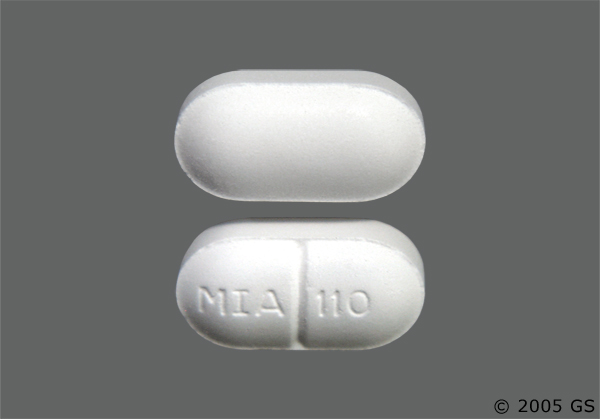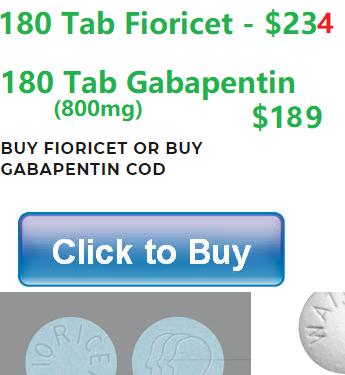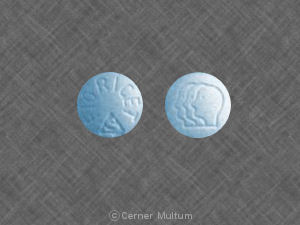Generic name:
Butalbital/acetaminophen/caffeine – oral
Pronunciation
(bue-TAL-bi-tal/a-SEET-a-MIN-oh-fen/KAF-een)
Brand name(s)
Esgic , Fioricet
Acetaminophen Warnings
One ingredient in this product is acetaminophen. Taking too much acetaminophen may cause serious (possibly fatal) liver disease. Adults should not take more than 4000 milligrams (4 grams) of acetaminophen a day. People with liver problems and children should take less acetaminophen. Ask your doctor or pharmacist how much acetaminophen is safe to take.
Do not use with any other drug containing acetaminophen without asking your doctor or pharmacist first. Acetaminophen is in many nonprescription and prescription medications (such as pain/fever drugs or cough-and-cold products). Check the labels on all your medicines to see if they contain acetaminophen, and ask your pharmacist if you are unsure.
Get medical help right away if you take too much acetaminophen (overdose), even if you feel well. Overdose symptoms may include nausea, vomiting, loss of appetite, sweating, stomach/abdominal pain, extreme tiredness, yellowing eyes/skin, and dark urine.
Daily alcohol use, especially when combined with acetaminophen, may damage your liver. Avoid alcohol.
What Fioricet is Used For ?
This combination medication is used to treat tension headaches. Acetaminophen helps to decrease the pain from the headache. Caffeine helps increase the effects of acetaminophen. Butalbital is a sedative that helps to decrease anxiety and cause sleepiness and relaxation.
Other Usages of Fioricet
This section contains uses of this drug that are not listed in the approved professional labeling for the drug but that may be prescribed by your health care professional. Use this drug for a condition that is listed in this section only if it has been so prescribed by your health care professional.
This drug may also be used for migraine headaches.
How to use Fioricet ?
Take this medication by mouth with or without food as directed by your doctor, usually every 4 hours as needed.
If you are using the liquid form of this medication, carefully measure the dose using a special measuring device/spoon. Do not use a household spoon because you may not get the correct dose.
The dosage is based on your medical condition, age, and response to treatment. This medication works best if it is used as the first signs of a headache occur. If you wait until the headache has worsened, the medication may not work as well.
If you suddenly stop using this medication, you may have withdrawal symptoms (such as nausea/vomiting, mental/mood changes, seizures). To help prevent withdrawal, your doctor may lower your dose slowly. Withdrawal is more likely if you have used this medication for a long time or in high doses. Tell your doctor or pharmacist right away if you have withdrawal.
Though it helps many people, this medication may sometimes cause addiction. This risk may be higher if you have a substance use disorder (such as overuse of or addiction to drugs/alcohol). Take this medication exactly as prescribed to lower the risk of addiction. Ask your doctor or pharmacist for more details.
Tell your doctor if you notice increased use of this medication, a worsening of headaches, an increase in the number of headaches, the medication not working as well, or use of this medication for more than 2 headache episodes a week. Do not take more than recommended. Your doctor may need to change your medication and/or add a separate medication to prevent the headaches.
Side Effects of Fioricet
Nausea, vomiting, abdominal pain, constipation, dry mouth, shaking (tremor), shortness of breath, increased urination, lightheadedness, dizziness, drowsiness, or trouble sleeping may occur. If any of these effects last or get worse, tell your doctor or pharmacist promptly.
To reduce your risk of dizziness and lightheadedness, get up slowly when rising from a sitting or lying position.
Remember that this medication has been prescribed because your doctor has judged that the benefit to you is greater than the risk of side effects. Many people using this medication do not have serious side effects.
Tell your doctor right away if you have any serious side effects, including:
-
-
- mental/mood changes
- fainting
- seizures
- fast/irregular heartbeat
-
A very serious allergic reaction to this drug is rare. However, get medical help right away if you notice any symptoms of a serious allergic reaction, including:
-
-
- rash
- itching/swelling (especially of the face/tongue/throat)
- severe dizziness
- trouble breathing
-
This is not a complete list of possible side effects. If you notice other effects not listed above, contact your doctor or pharmacist.
In the US –
Call your doctor for medical advice about side effects. You may report side effects to FDA at 1-800-FDA-1088 or at www.fda.gov/medwatch.
In Canada – Call your doctor for medical advice about side effects. You may report side effects to Health Canada at 1-866-234-2345.
Precaution of Taking Fioricet
Before taking this medication, tell your doctor or pharmacist if you are allergic to acetaminophen, caffeine, or butalbital; or to other barbiturates (such as phenobarbital) or xanthine derivatives (such as theophylline); or if you have any other allergies. This product may contain inactive ingredients, which can cause allergic reactions or other problems. Talk to your pharmacist for more details.
Before using this medication, tell your doctor or pharmacist your medical history, especially of:
-
-
- severe breathing problems (such as bronchopneumonia)
- a certain enzyme disorder (porphyria)
- liver disease
- kidney disease
- personal or family history of a substance use disorder (such as overuse of or addiction to drugs/alcohol)
- mental/mood disorders
- abdominal/stomach problems (such as stomach ulcer)
-
This drug may make you dizzy or drowsy. Alcohol or marijuana (cannabis) can make you more dizzy or drowsy. Do not drive, use machinery, or do anything that needs alertness until you can do it safely. Avoid alcoholic beverages. Talk to your doctor if you are using marijuana (cannabis).
Liquid products may contain alcohol, sugar and/or aspartame. Caution is advised if you have diabetes, alcohol dependence, liver disease, phenylketonuria (PKU), or any other condition that requires you to limit/avoid these substances in your diet. Ask your doctor or pharmacist about using this product safely.
Before having surgery or certain medical procedures (such as a heart stress test or a procedure to restore a normal heart rhythm if you have an unusually fast heartbeat), tell your doctor or dentist that you use this medication and about all the products you use (including prescription drugs, nonprescription drugs, and herbal products).
Older adults may be more sensitive to the side effects of this drug, especially drowsiness and trouble falling asleep. These side effects can increase the risk of falling.
During pregnancy, this medication should be used only when clearly needed. Using it for long periods or in high doses near the expected delivery date is not recommended because of possible harm to the unborn baby. Discuss the risks and benefits with your doctor. Infants born to mothers who have used this medication for an extended time may have withdrawal symptoms such as irritability, abnormal/nonstop crying, vomiting, seizures, or diarrhea. Tell your doctor right away if you notice any of these symptoms in your newborn.
This drug passes into breast milk and could have undesirable effects on a nursing infant. Consult your doctor before breast-feeding.
Fioricet Drug Interaction
Drug interactions may change how your medications work or increase your risk for serious side effects. This document does not contain all possible drug interactions. Keep a list of all the products you use (including prescription/nonprescription drugs and herbal products) and share it with your doctor and pharmacist. Do not start, stop, or change the dosage of any medicines without your doctor’s approval.
Some products that may interact with this drug include:
-
-
- darunavir
- sodium oxybate
- isoniazid
- ketoconazole
- levoketoconazole
- lithium
- phenothiazines (such as chlorpromazine)
-
This drug can speed up the removal of other drugs from your body by affecting certain liver enzymes. These affected drugs include doxycycline, estrogen, felodipine, lonafarnib, quinidine, rilpivirine, tamoxifen, theophylline, voriconazole, “blood thinners” (such as warfarin), certain beta blockers (such as metoprolol), corticosteroids (such as prednisone), among others.
Tell your doctor or pharmacist if you are taking other products that cause drowsiness such as opioid pain or cough relievers (such as codeine, hydrocodone), alcohol, marijuana (cannabis), other drugs for sleep or anxiety (such as alprazolam, lorazepam, zolpidem), muscle relaxants (such as carisoprodol, cyclobenzaprine), or antihistamines (such as cetirizine, diphenhydramine).
Check the labels on all your medicines (such as allergy or cough-and-cold products) because they may contain caffeine or ingredients that cause drowsiness. Also keep in mind that certain beverages (such as coffee, colas, tea, energy drinks) contain caffeine. Ask your pharmacist about using those products safely.
This medication may decrease the effectiveness of hormonal birth control such as pills, patch, or ring. This could cause pregnancy. Discuss with your doctor or pharmacist if you should use additional reliable birth control methods while using this medication. Also tell your doctor if you have any new spotting or breakthrough bleeding, because these may be signs that your birth control is not working well.
This medication may interfere with certain medical/laboratory tests, possibly causing false test results. Make sure laboratory personnel and all your doctors know you use this drug.
Overdose of Taking Fioricet
If someone has overdosed and has serious symptoms such as passing out or trouble breathing, call 911. Otherwise, call a poison control center right away. US residents can call their local poison control center at 1-800-222-1222. Canada residents can call a provincial poison control center. Symptoms of overdose may include: severe drowsiness, slow/shallow breathing, severe dizziness, nausea, vomiting, loss of appetite, sweating, stomach/abdominal pain, extreme tiredness, yellowing eyes/skin, dark urine.
Storage of Fioricet
Store at room temperature away from light and moisture. Do not store in the bathroom. Keep all medications away from children and pets.
Do not flush medications down the toilet or pour them into a drain unless instructed to do so. Properly discard this product when it is expired or no longer needed. Consult your pharmacist or local waste disposal company.
Is Fioricet Considered a Narcotic?
Most people will say yes although maybe not in the strictest terms, but if it contains codeine, it is absolutely a narcotic.
Is Fioricet considered a narcotic? This is a common question people have about this prescription headache medicine. Below is an overview of what a narcotic is and information about Fioricet including whether or not it’s considered a narcotic.
What is a Narcotic?
Before exploring if Fioricet is a narcotic, what is a narcotic? The term narcotic was at one point in history used to refer to any psychoactive substance that tended to induce sleep, but currently, in the U.S., it’s primarily associated with opioids including heroin, as well as prescription painkillers.
When you’re looking at the term narcotic in the legal sense, people often associate it with illegal drugs like heroin, but a narcotic can also be used to describe controlled substances such as painkillers that are regulated but available by prescription.
In the U.S. there are classifications for various narcotics that define the penalties for possessing the illegally, including without a prescription.
So, is Fioricet a narcotic?
Fioricet Ingredients
In regular Fioricet there are three primary, active ingredients These are butalbital, which is a barbiturate, acetaminophen which is a painkiller available over-the-counter, and caffeine. These three ingredients are meant to work together to relieve headache pain and similar symptoms.
When considering whether Fioricet is a narcotic, the primary ingredient to look at is the butalbital, because the other two ingredients would never be considered narcotics.
Butalbital is a barbiturate with an intermediate duration of action, and it’s FDA approved for the use as a treatment for tension headaches. Despite its effectiveness in treating headaches, particularly of the tension variety, it’s not the first option. Butalbital can cause problems with alertness, and there’s the risk for dependence and addiction. Some people describe the effects of Fioricet as making them feel drunk.
Legally in the U.S., barbiturates of all kinds are Schedule IV.
Features of Schedule IV drugs according to the United States Controlled Substance Act include:
-
- There is a relatively low potential for abuse compared to substances that are classified as Schedule III
- The substance has a currently accepted medical use in the U.S.
- With abuse of a Schedule IV drug, there is a limited potential that physical or psychological dependence could occur
It could be considered by some to be a narcotic, but usually the term narcotic refers to opioids, which will be discussed below.

Fioricet with Codeine
There is a version of Fioricet that has all of the ingredients listed above but also includes codeine. Codeine is completely classified as a narcotic in the U.S, and it’s a controlled substance. Codeine is not only a narcotic pain reliever but also a cough suppressant, and it’s similar in many ways to morphine and hydrocodone.
When someone takes a drug with codeine, it binds to opioid receptors, changing how the person perceives pain. It increases pain tolerance, and it can also depress the central nervous system. Codeine is frequently paired with acetaminophen or aspirin to be even more effective as a painkiller.
To sum up, is Fioricet a narcotic? Most people will say yes although maybe not in the strictest terms, but if it contains codeine, it is absolutely a narcotic.
Fioricet Warnings
As with other narcotics and prescription pain medicines, Fioricet has many warnings that accompany its use.
First and foremost, this medicine can cause liver toxicity because of the acetaminophen. It’s important that people realize that they should never take an excessive amount of acetaminophen in one day because it can lead to liver damage or failure. Also, while it may be somewhat lower than with other narcotics, there is the potential for abuse, addiction, and dependence with the use of barbiturates including butalbital.



